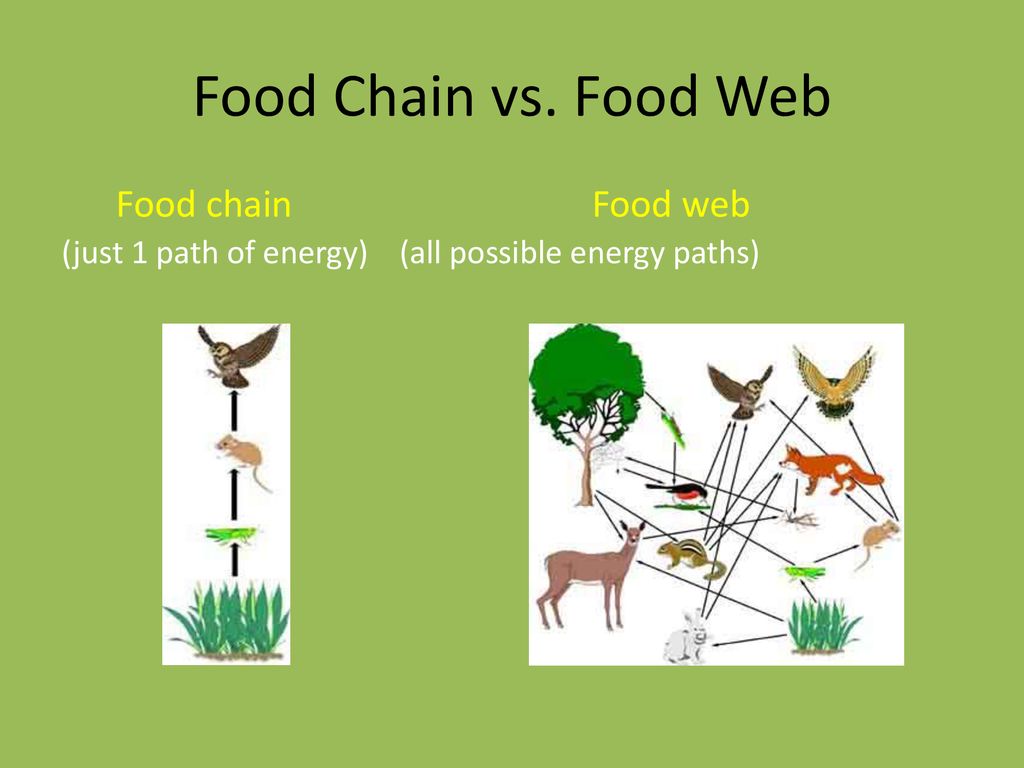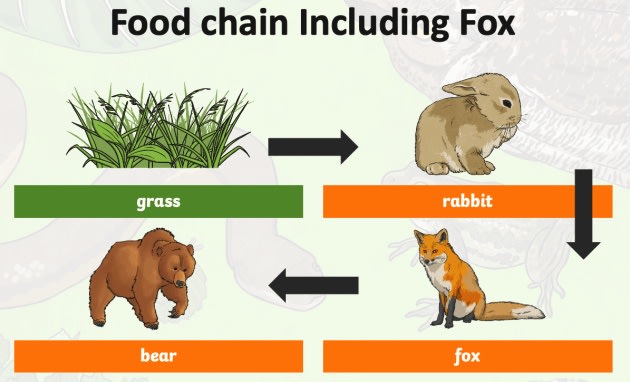Human Food Chain Biology Diagrams All food webs include multiple food chains. Can humans impact food chains? Yes, human activities like pollution, habitat destruction, and overfishing disrupt food chains, leading to ecological imbalances. How long is a typical food chain? Most food chains are relatively short, usually comprising about 4 to 6 trophic levels.

A grazing food chain can be either predator or a parasitic type. In a predator grazing food chain, one animal consumes another animal. The animal that is eaten is known as the prey, and the animal that eats is called the predator. In contrast, plants and animals are infected by parasites in a parasitic grazing food chain. 2. A food chain represents the relationship between predator and prey. It is a way of classifying animals, plants, and fungi that eat other organisms in order to survive. The four levels in this food chain are primary consumers, secondary consumers, tertiary consumers, and finally decomposers or phytoremediators. Humans are said to be at the top of the food chain because they eat plants and animals of all kinds but are not eaten consistently by any animals. The human food chain starts with plants. Plants eaten by humans are called fruits and vegetables, and when they eat these plants, humans are primary consumers. Most humans also eat animals further up

Food Chain With Three Organisms That Include Humans Biology Diagrams
Humans are consumers and thus are ranked above the producers in any food chain. They rank at the top of any food chain, above the tertiary consumers, because they consume both plants (vegetables) and meat (other consumers) but are not eaten consistently by any animals. Humans prey on animals at all the trophic levels of the food chain. However, the food habit of humans is not universal. An A typical human food chain is three or four organisms long. Plants, or algae being the producer, are at the bottom of the food chain. Herbivores like cows, goats, pigs, and sheep, the primary consumer of the food chain, follow them. When humans feed on the primary consumers, they become secondary or apex consumers in this food chain. In other words, monitoring the intricacies of our middling position on the food chain may yield scientific fodder to tackle problems like food security, obesity, malnutrition and environmental

An animal's ranking on the food chain depends on where its meals place on the ladder. That puts plants on the bottom (they make all their food), polar bears on top and people somewhere between The basic idea of the food chain is a who-eats-who type of mapping with the ultimate predator at the top of the hierarchy. Starting in the 1940s, scientists began developing a more complex system involving trophic levels that divided all plant and animal life into distinct categories of plant life, herbivores, primary and secondary carnivores. The study of trophic levels (called trophodynamics Human beings are omnivorous animals. External causes affecting the food chain. All living organisms hold a specific place in the food chain, which is based on the transfer of energy through an ecosystem. Food web vs food chain. Food Chain: Food web: Linear explanation of which organism eats another organism.
